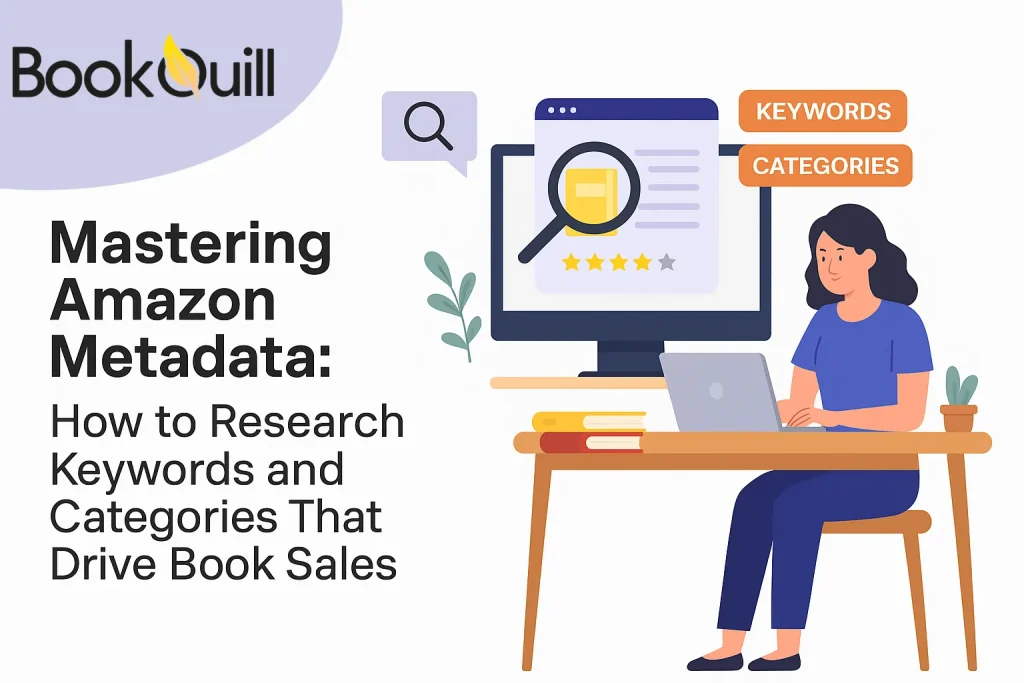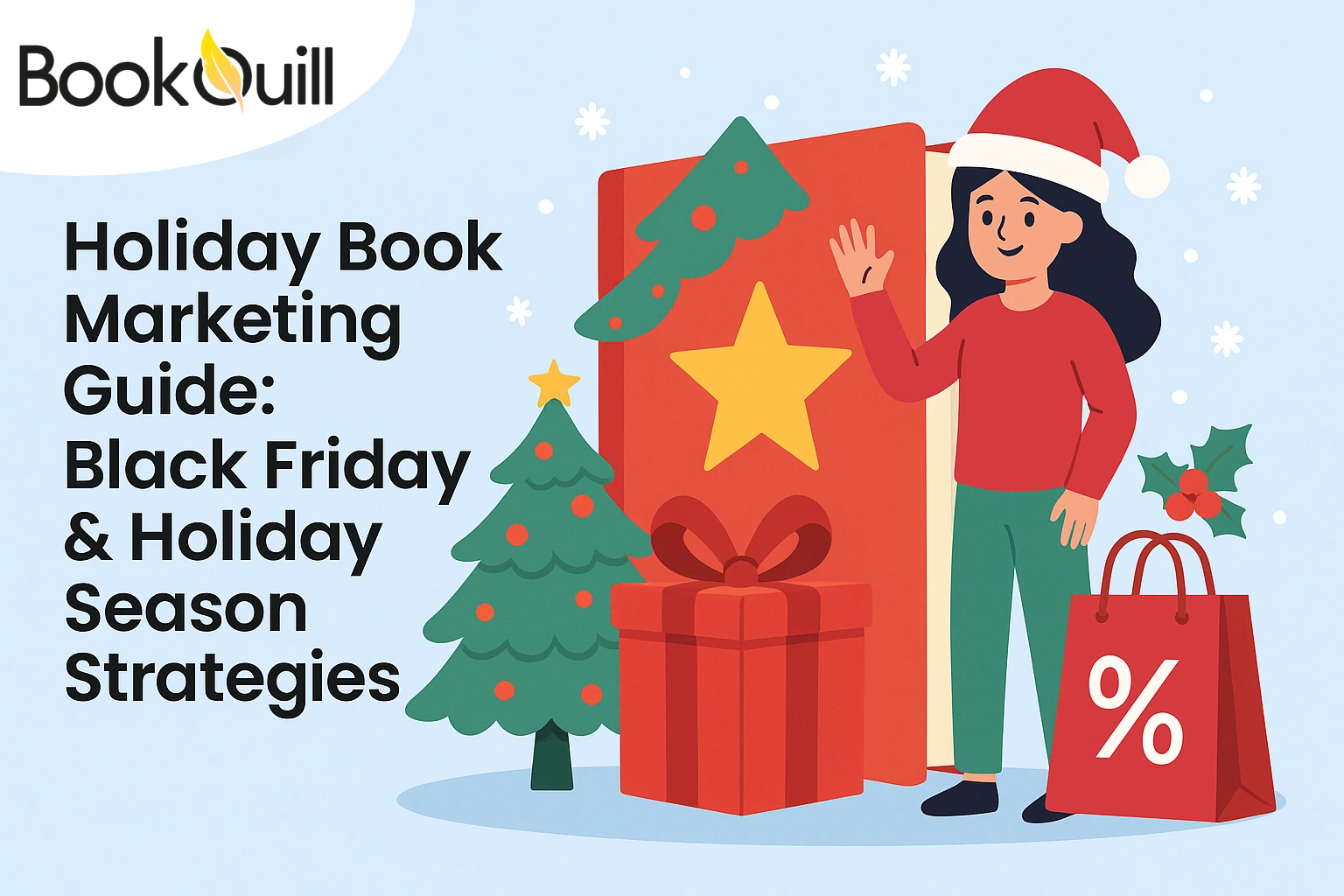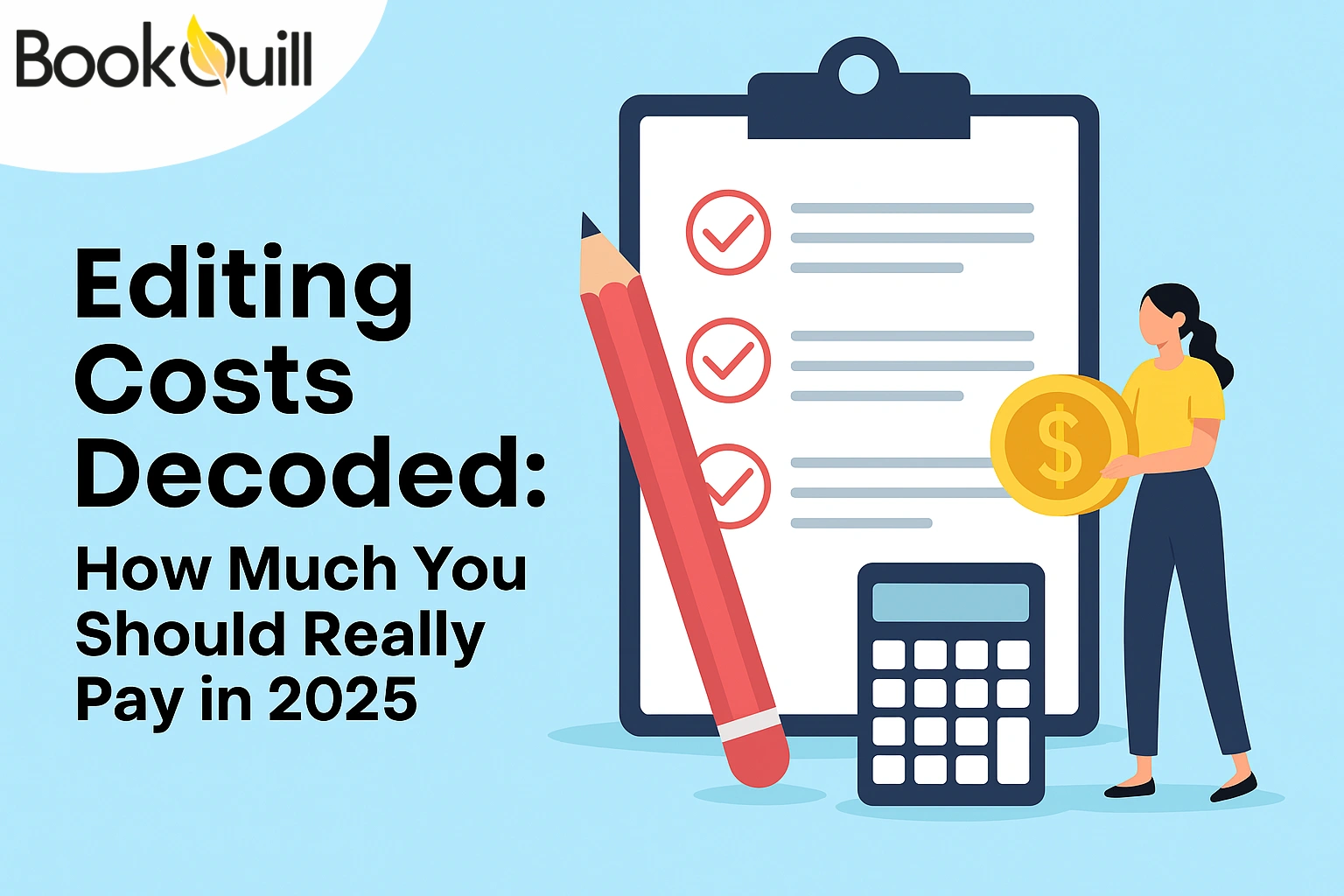Table of Contents
Explore Blogs
Trending on Ebook
Mastering Amazon Metadata: How to Research Keywords and Categories That Drive Book Sales

You’ve finished your book, designed a great cover, and hit publish. But now what? If your book isn’t showing up in searches or climbing the charts, it might not be a content issue—it could be your Amazon Metadata. In fact, it sells more than twice as much as those that lack key details.
If you want more eyes on your book – and more sales – it’s important to get this part.
In this blog, we’ll break down exactly how to research and choose the right keywords and categories. You’ll learn how to make sure your book shows up in searches, gets into the right rankings, and connects with the readers looking for exactly what you wrote.
Whether you’re a first-time author or have already published a few titles, understanding this is one of the smartest things you can do to boost sales.
Let’s walk through it together, step by step.
Key Takeaways
- Metadata helps your book get found on Amazon.
- It includes your title, subtitle, description, keywords, and categories.
- Keywords and categories are the most important parts of metadata.
- Keywords help readers find your book through Amazon search.
- Categories decide where your book is placed and how it ranks.
- Use tools or the best book marketing services to optimize your metadata.
- Update your keywords and categories regularly for better results.
- Test different options to see what improves visibility and sales.
What Is Amazon Metadata?
Metadata is the behind-the-scenes info Amazon uses to figure out what your book is about and who might want to read it. It includes things like:
- Book Title and Subtitle
- Author Name
- Book Description
- Keywords
- Categories
It may sound simple, but these details tell Amazon’s system what your book is about—and more importantly, who should see it.
Does It Matter?
Think of Amazon like a giant digital bookstore. When someone types into the search bar, Amazon uses metadata to decide which books to show. If your metadata is strong and accurate, your book has a better chance of popping up in the right searches and being shown to the right readers.
So yes, metadata really matters. However, getting it right is one of the easiest and most powerful ways to boost your book’s visibility without spending a dime.
Keywords vs. Categories: What’s the Difference?
When setting up your Amazon Metadata, you’ll notice two important fields:
- Keywords
- Categories
Both help Amazon understand what your book is about, but they serve two very different purposes.
Keywords
Adding strong keywords to metadata has been shown to lift average sales by around 28%. They help your book show up when someone types into the Amazon search bar.
For example, if someone searches “slow burn romance with a twist,” and your book has that phrase or parts of it in your keywords, it might show up in the results. These are phrases or words that describe your book’s content, themes, or style.
You get seven keyword slots in your KDP dashboard. Each slot can contain a short phrase (not just one word), which gives you more flexibility.
Categories
These are like digital shelves. They tell Amazon where to place your book.
For example, is it a Romantic Comedy or a Psychological Thriller? You get to choose two categories when publishing your book.
Categories affect your chances of ranking as a bestseller. When your book ranks well in a category, it can appear on the Kindle best-sellers list, giving you more exposure and trust with readers.
To do well, you need to use both keywords and categories together.
How to Choose Keywords for Your Book
Choosing the right keywords is one of the most important parts of setting up your Metadata. Good keywords help readers discover your book when they’re searching for something similar.
Here are some simple ways to find the right keywords:
1. Use the Amazon Search Bar
Start typing phrases related to your book into the Amazon Books search bar. Amazon will auto-suggest common search terms based on what readers are already looking for. These suggestions are gold! For example, typing “mystery novel with…” might show things like “a female detective,” or “a twist ending.” These are real phrases people search for.
2. Check Similar Books
Look at books similar to yours. Scroll down their Amazon page and check their categories and keywords (in reviews, descriptions, or “Customers also bought” sections). What words are popping up again and again?
3. Try Keyword Tools
Tools like Publisher Rocket (paid) or KDP Wizard can help you find keyword ideas and see how competitive they are. You can also use Google Trends to compare phrases.
4. Think Like a Reader
Don’t use keywords only an author would use; think like your reader. Instead of “coming-of-age,” try “teen romance with life lessons,” or instead of “space opera,” use “sci-fi adventure with strong female lead.”
Quick Tip
Avoid using your title or author name as a keyword; Amazon already has that covered.
Choosing strong, clear keywords gives your book a better chance of showing up in searches and getting clicked.
Best Practices for Selecting Amazon Categories
When you set up your Amazon Metadata, you can choose two categories in your KDP dashboard.
But here’s a secret: You can ask Amazon to add up to 10 categories in total by contacting KDP support. That means more chances for your book to appear in more places.
Why Selecting the Right Categories Matters
If you pick smaller, more specific categories, your book has a better shot at hitting the charts. When that happens, Amazon shows your book to more readers through recommendation sections like “Customers Also Bought” and “Related to This Item.”
For example, a mystery book listed under “Mystery > Cozy > Crafts and Hobbies” might rank faster than under just “Mystery > General” because there’s less competition.
Quick Tip
- Look at the top Kindle books in your genre. What categories are they in?
- Use niche categories to stand out and rank quicker.
- Don’t choose categories that don’t match your content; Amazon might reject them.
Taking time to research and test categories is a smart move. Even one change can boost visibility and lead to more sales.
Mistakes to Avoid When Setting Your Metadata
Setting up your Amazon Metadata might seem straightforward, but small mistakes can hurt your book’s chances of being seen or sold. Let’s go over a few things to avoid:
Don’t Stuff Keywords
It’s tempting to cram as many keywords as possible into your title or subtitle. But Amazon doesn’t like that—and neither do readers. A subtitle like “A Romance Love Mystery Thriller Suspense Story” feels messy. Stick to clear, natural wording.
Don’t Pick Irrelevant Categories
If your book is a fantasy novel but you place it in a nonfiction category just because it’s less competitive, Amazon may remove or change it. Always pick categories that match your actual content.
Don’t Use Repetitive Keywords
Amazon already knows your book title, author name, and category. You don’t need to repeat them in your keyword slots. Use that space for fresh terms your ideal reader might type in.
Don’t Skip Research
Guessing your metadata is like throwing darts in the dark. Take a little time to research keywords and categories. It makes a big difference in how your book performs.
Some Examples of Good Metadata (Before and After)
One of the easiest ways to understand how Amazon Metadata works is by looking at real examples. Let’s break down how small changes in keywords, titles, and categories can make a big impact.
Weak vs. Strong Title & Subtitle
Before:
Title: “Journey to the Stars”
Subtitle: “An Adventure”
This is vague. It doesn’t say what kind of book it is, who it’s for, or what makes it interesting.
After:
Title: “Journey to the Stars”
Subtitle: “A Sci-Fi Adventure with a Reluctant Hero and a Dying Planet”
This version gives more detail and includes phrases that potential readers might actually search for.
Unused Keyword Slots
Many authors leave keyword fields blank or use single, broad terms like “fantasy” or “romance.” These are too general.
Instead, use keyword phrases like:
- “young adult enemies to lovers fantasy”
- “romantic suspense with strong female lead”
These are more specific and match real reader searches.
Better Category Choice
An author chose:
- Fiction > General
Too broad.
Better choice:
- Fiction > Romance > Workplace
- Fiction > Romance > Multicultural
This gives the book a better shot at ranking, especially if it’s not competing against top Kindle books in large, saturated categories.
These small tweaks can help your book get noticed more and bought more.
How Metadata Impacts Sales Over Time
When you publish your book, the results don’t always show up right away. However, the way you set up your Amazon Metadata can have a big effect on your sales, especially over time.
Amazon uses something called an algorithm to decide which books to show readers. It pays attention to what people click on, what they buy, and how long they stay on a book’s page. The stronger your metadata, the better chance your book has to get picked up by this system.
For example, if you pick keywords that match real reader searches, your book is more likely to show up when someone types a similar phrase. If they click, Amazon takes that as a sign that your book is a good match and may show it to even more people.
This is how books slowly climb the rankings. In fact, books with improved metadata can see gradual increases in visibility, clicks, and sales over several weeks or months. It’s not just about launch day but about long-term discoverability.
Tip
Revisit your metadata every few months. Even small updates to your keywords or categories can give your book a fresh push in Amazon’s system.
When to Update Your Amazon Metadata
Just because your book has already been published doesn’t mean your metadata has to stay the same. In fact, updating it from time to time can boost visibility and help you reach new readers.
Here are a few good times to update your metadata:
- After launch week: Once you have a few reviews, see which keywords and categories are performing. You can adjust what’s not working.
- If your rankings drop: Sales might slow down over time. Updating your keywords or picking new categories can give your book a second chance.
- When you learn more about your readers: Maybe you thought your audience was teens, but reviews show adults love it too. Update your keywords to match!
- Before a relaunch or promotion: If you’re planning a sale or ad campaign, make sure your metadata is strong and accurate first. This helps to boost sales by giving books more time to be indexed and recommended.
Tools and Services That Can Help
You don’t have to figure out Amazon Metadata on your own. Some tools and services can help you research, test, and improve your keywords and categories.
Publisher Rocket
This tool helps you find real Amazon search terms, keyword competition, and category data. It’s beginner-friendly and shows what readers are actually typing.
Kindlepreneur Blog
A great free resource with guides and tutorials on how to optimize your book listings.
KDP Rocket (same as Publisher Rocket)
Great for seeing which categories are less competitive so you can aim to rank in them.
Vellum
A book formatting tool that lets you preview your manuscript in Kindle and print layout.
Google Trends
Use it to compare different keyword phrases and see what readers are searching for over time.
Text Optimizer or Kparser
These help you come up with long-tail keywords that go beyond one or two words.
If you’d rather not handle metadata on your own, there are professional book marketing services that can help. Some of them also offer keyword research and listing optimization as part of their packages.
Hiring Help: Is It Worth Paying for Metadata Services?
If working with Amazon Metadata feels overwhelming, you’re not alone. Many authors choose to hire help, especially if they want to save time or boost results.
Some companies and freelancers specialize in metadata research. They help with things like
- Keyword Optimization
- Subtitle Writing
- Category Selection
- Book Descriptions
These services can be useful if you’re not sure what readers are searching for or how to position your book.
For authors on a budget, there are affordable book marketing services that offer metadata help without costing too much. If
Of course, you don’t have to pay for help; many authors learn it themselves. But if you’re short on time or launching your first book, investing in a bit of professional support can make a real difference.
Final Note
You don’t need to be a tech expert to improve your book’s visibility; you just need to understand how Amazon Metadata works. With the right keywords and categories, your book has a much better chance of being discovered, ranked, and read.
By spending a little time researching your metadata, you’re setting your book up for success long after launch day. And the best part? These changes are easy to make and don’t cost a thing.
If your goal is to grow your readership and increase sales, don’t skip this step. It’s one of the most important things you can do as an indie author.
Start with what you’ve learned today, take it one piece at a time, and give your book the best chance to shine!
Frequently Asked Questions
How can I tell if my Amazon keywords are helping my book?
The easiest way is to search your chosen keywords on Amazon and see if your book shows up. If it doesn’t appear in the first few pages, your keywords might be too broad or not aligned with what readers are typing.
Is it okay to reuse the same keywords across multiple books?
You can, but it’s better to customize your keywords for each book. Even if your books are in the same genre, each story has its own angle, tone, or tropes.
Do I need different metadata for a series box set?
Yes. A box set or bundle should have its own metadata, including a description, keywords, and categories. Think about what makes the set appealing as a whole, like a full romance trilogy or a complete mystery series.
How long does it take for metadata changes to show results?
Usually, it takes a few days to a few weeks. Amazon needs time to re-index your book and track how people interact with it (clicks, views, purchases).
Can I get help with metadata if I’m just starting?
Absolutely. If you’re new to this or short on time, hiring help can make a big difference. An affordable book marketing company can help you the best without breaking your budget.
Note: Some links in this post are affiliate links. If you buy through them, we may earn a small commission, at no extra cost to you. We only suggest tools we trust and find useful. Thanks for your support!
About Author
Hi, my name is Zachary Stone I’m a book marketing nut — or, as I like to call myself, a “Shelf Marketer.” No, I don’t sell wooden shelves; I market the books that are left forgotten on them. If you want your book to be the next bestseller, I am your go-to person. I am here to remind you that it’s not just about writing a great story — it’s about building a buzz among people with great campaigns.




